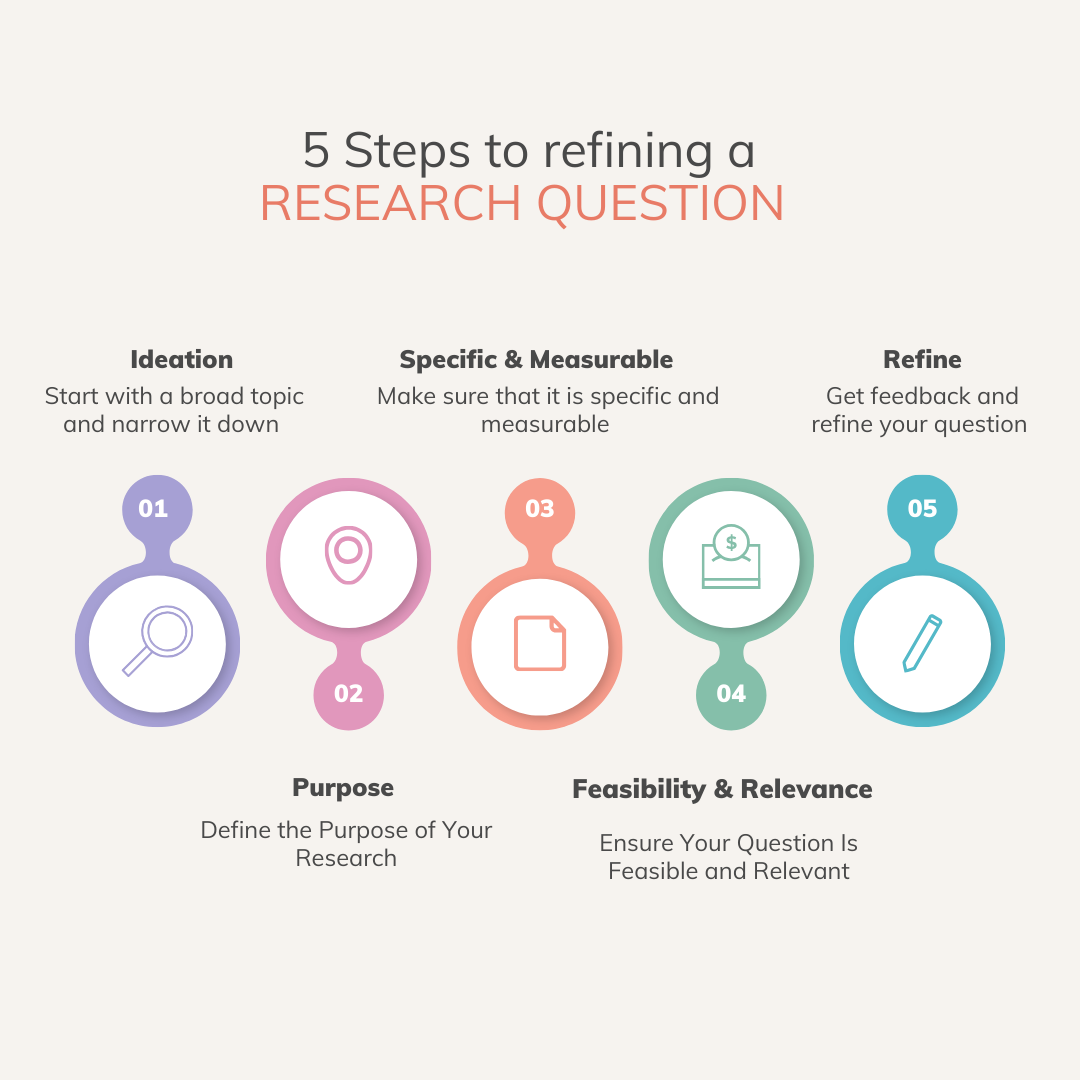One of the most crucial steps in any dissertation project is crafting a clear, focused research question. A well-defined research question acts as the foundation of your study, guiding your research, shaping your analysis, and helping you stay focused. However, creating an effective research question can be challenging, as it requires a balance between specificity and complexity. In this post, we’ll walk you through how to develop a strong research question and why it’s the key to a successful dissertation.
Why Is a Strong Research Question So Important?
Your research question is the heart of your dissertation. It narrows your study’s focus, informs your methodology, and gives your research direction. A vague or overly broad question can lead to confusion and make it difficult to form coherent arguments, while a well-crafted question helps ensure your work is clear, purposeful, and compelling. This clarity not only aids your own research process but also makes your work easier for others to understand and evaluate.
Step 1: Start with a Broad Topic and Narrow It Down
The first step is to begin with a broad area of interest and gradually narrow it down. Think about topics you’re passionate about or areas where you have existing knowledge. For example, if your general area of interest is “sustainable energy,” that’s a good starting point but far too broad for a dissertation.
Example: Let’s say you’re interested in sustainable energy sources in urban areas. Narrowing it down could involve focusing on specific cities, types of energy, or impacts on local communities. For instance, you might ask, “What are the economic benefits of implementing solar energy in urban neighbourhoods in Chicago?”
As you narrow your topic, keep an eye out for potential gaps in the literature that your research could fill. Identifying these gaps will help you refine your focus.

Step 2: Define the Purpose of Your Research
Ask yourself what you’re hoping to achieve through your study. Is it to explain, explore, compare, or describe a phenomenon? This purpose will influence the phrasing and focus of your research question. For instance, exploratory research questions might start with “How” or “Why,” while comparative research might focus on “What are the differences between…?”
Example: If your purpose is to understand community perceptions of sustainable energy in urban areas, your question could be, “How do residents in urban Chicago perceive the shift toward solar energy?”
Clearly defining your research’s purpose early on will make it easier to stay on track and avoid diverging into unrelated areas.
Step 3: Make It Specific and Measurable
Specificity is key when crafting a strong research question. Avoid overly broad terms, and instead, aim for something that’s manageable within your scope and resources. Additionally, the question should be something that can be answered through research, either through data collection, analysis, or theoretical exploration.
Example: Rather than asking, “What is the effect of renewable energy?” which is too broad, consider, “What impact has solar energy had on property values in urban Chicago?”
A specific, measurable question like this provides a clear path for data collection and analysis, allowing you to design your study in a way that leads to concrete answers.
Step 4: Ensure Your Question Is Feasible and Relevant
A great research question is not only interesting but also feasible. Think about the time, resources, and skills required to address your question. If your question involves complex data or requires resources that aren’t available to you, consider adjusting it to something more practical.
Additionally, ensure that your question contributes to your field. Ask yourself if it addresses a genuine gap or problem and whether it will provide value to other researchers, policymakers, or practitioners.
Example: A relevant and feasible question might be, “How does access to solar energy in urban neighbourhoods affect local economic development?”
This question is narrow enough to be feasible, relevant to the field of urban development, and likely of interest to other researchers and stakeholders.
Step 5: Get Feedback and Refine Your Question
Once you’ve drafted your question, seek feedback from advisors, peers, or a dissertation coach. Others might see areas where the question could be clearer, more focused, or more achievable. You don’t have to get it perfect right away; research questions often go through multiple revisions.
Remember, feedback is a tool to help strengthen your question and give you a solid foundation for your research. Don’t be afraid to make changes as you gain insights from others.
Common Pitfalls to Avoid
1. Being Too Vague: Avoid overly broad terms like “impact” or “effect” without specific context. Be clear and precise.
2. Overly Complex Questions: Aim for a question that’s challenging yet manageable within your timeline and resources. Simplicity can often lead to depth.
3. Questions That Are Too Narrow: While specificity is key, a question that’s too narrow might limit your ability to explore the topic. Strike a balance between focus and depth.
4. Choosing a Question Based on Popularity: Don’t choose a question just because it’s trendy. Focus on what genuinely interests you and fills a meaningful gap.
How Coaching Can Help You Craft the Perfect Research Question
Creating a strong research question can be challenging, but you don’t have to do it alone. An academic coach can guide you through this process by helping you refine your ideas, identify gaps in the literature, and ensure that your question is focused, achievable, and aligned with your goals. Coaching provides personalized feedback and helps you navigate the early stages of research with confidence.
Working with an experienced coach can save you time, reduce stress, and make the entire research process more manageable. Whether you’re at the beginning of your journey or revising your question, coaching can provide the support you need to start strong.
Final Thoughts
Developing a strong research question is the foundation of a successful dissertation. By taking the time to refine and focus your question, you’ll create a clearer path for your research and set yourself up for a smoother, more rewarding journey.